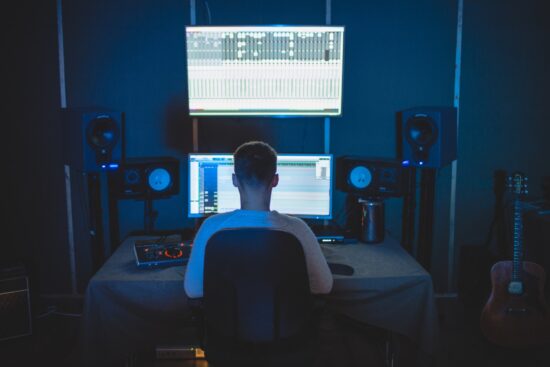Audio engineers use sound equipment to record, mix, and synthesize music and sound. They can work in the music, film, and even video game industries. Essentially, audio engineers work to minimize the amount of unwanted sound, regulate the sound quality, and collaborate with musicians to finalize a piece of music in their vision. They are skilled operators of the studio’s recording equipment and are responsible for getting the best sound possible out of a musician’s recordings.
Most audio engineers get their start through school. There are options for both dedicated 4-year programs and technical schools, each one having unique advantages and disadvantages. They have several things in common, however, that might persuade you to apply.
The hands-on experience you’ll get through these programs is invaluable. These schools already have studios that audio recording students are free to use, giving you all of the equipment you would find at any professional recording studio. The teachers are usually industry experts themselves, so they’ll be able to provide you with a personalized training experience that you wouldn’t otherwise get in, say, an internship. The gear you learn on is often the industry standard, so it’s more likely than not that you’ll already be familiar with the equipment when you land your first recording job. You will need to be a good student as well but there is always help from sites like CustomEssayMeister for your homework.
Networking in The Music Industry is so Important
Although the experience is great, the networking opportunities that you’ll find through school are probably the most important part. A good portion of success in any field is knowing the right people. Most audio engineers rely heavily on word of mouth to find their next job. By going to school specifically for recording, you’ll meet all kinds of people: potential clients, established mentors, and peers that you’ll probably end up seeing in the industry for years to come. Building those relationships early on is a key part of the longevity of your potential career. The music industry might seem big at first, but the longer you’re in it, the more you’ll realize that everybody else knows everybody else.
If for whatever reason, you don’t end up getting your first job through previous connections, a degree or certificate in audio engineering will raise your chances of being employed significantly. People want to see that you’ve been in the studio, know what you’re doing, and have the discipline to finish the project. A certificate guarantees all of these things and can even net you a higher income just by having one. The demand for audio engineers is increasing, which means the number of audio engineers is, as well, and it’s important to have something that will set you apart from the pack.
Although school is important, you should know what to expect when you finally break into the industry. You’ll probably be working long hours and might not have the same vision for the final product as the artist does. The majority of your time will be spent recording, editing, and mixing. You might get tired of hearing the same piece of music for hours, but sending out the final product and seeing someone release an album that you’ve worked on feels better than you could ever believe. You might have to put in a lot of time in the beginning, but the more you produce, the further your name will go. Being an audio engineer may not be the most visible of music careers, but you can be certain that the pride you’ll feel and the connections you’ll make will make it all worth it in the end.










